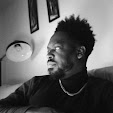I'm typing this late on a Friday night (into Saturday now) in October after a long week here in Philly. Monday morning I found out one of my students--one of our students at MLK High School was killed; the fifth, I believe, in as many months at our school. Last weekend, while he was at a vigil for his cousin who was taken too soon, someone chose to end Hyneef's life.
I cried.
Again.
That was Monday morning.
Monday afternoon, Walter Wallace, a brotha from West Philly, was shot and killed by Philly police. Sadly, angrily, this put Philly into the national and international spotlight as another police department in America chose to serve as police, judge, jury, and executioner for a Black man; an extrajudicial process not afforded to others who aren't in crisis and make multiple attempts on officers' lives. Exhibit A.
Walter Wallace Jr.’s life mattered. He should still be here. Another way is possible. Imagine a world where mental health issues, disabilities, or your race do not make you a target for criminalization & state murder.#WalterWallaceJr#blacklivesmatter#blackdisabledlivesmatter pic.twitter.com/QQOuRC0DdV
— BLM Philly (@BLMPhilly) October 30, 2020
— Dann Cuellar (@DannCuellar) October 21, 2020
Oh and in Philly we're teaching 100% online, much like many others across the country.
Oh and it's election season, a true-to-form 2020-type election season.
Combine all of these experiences and it quadruple underscores the need for classrooms, virtual or otherwise, to be safe spaces, mentally, physically, and emotionally, for Black students to be. The relationship that we as educators have with our students in large part determines the degree to which our classrooms are those needed safe spaces.
This past week during our common planning time for the English department, my colleagues and I shared examples of how we strive to do just that, build and strengthen relationships and make our classrooms virtual sanctuaries.
During the conversation, the need for teachers to also have these safe spaces was reiterated. We allowed ourselves to become vulnerable; to share our successes and struggles with relationship-building in this virtual space when our students need us most. We allowed ourselves to feel, to empathize, to embrace, to be right, to be wrong, to just be as teachers who are also human and who are also impacted by the aforementioned traumatizing experiences, as most of us are Black educators. To a great extent, we also allowed our students to see us for the humans we are this past week, something we also talked through during our chat.
In church, sometimes the program/bulletin reads at the bottom, the service is subject to the move of the Holy Ghost. If you know, you know. 👀☺There comes a time when the lesson plan needs to be subject to the reality of Black students' lived experiences. Why Black, specifically? If you have to ask, you may be part of the problem in the classroom. Fix it. Fix it by listening to Black students. You have two ears and one mouth for a reason. Listen to Black educators. Listen to Black parents. When you listen, that doesn't mean you're thinking of what you're going to say next in either rebuttal or even a compliment. Sometimes just say nothing. Let Black words marinate.
In spite of the challenges that confront us, I am hopeful. I am also prayerful. I have to be! Running through our veins is the blood of royalty, of freedom fighters, of thinkers, inventors, change-makers and agents, and so much more!
Teacher-student relationships matter, especially now! Our students aren't looking for chumbuddies in their teachers, but they sure as the sun rises want someone who's human!












